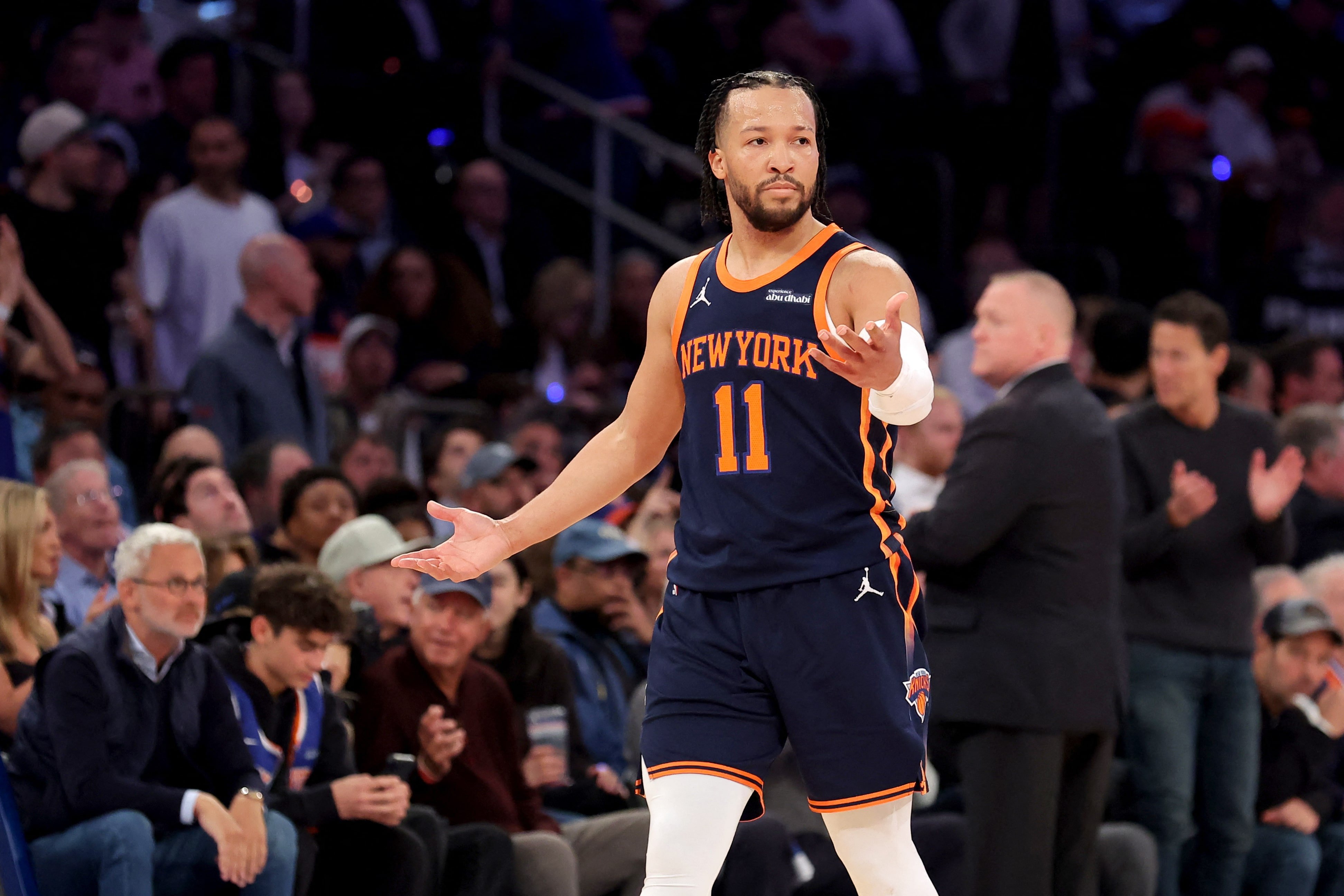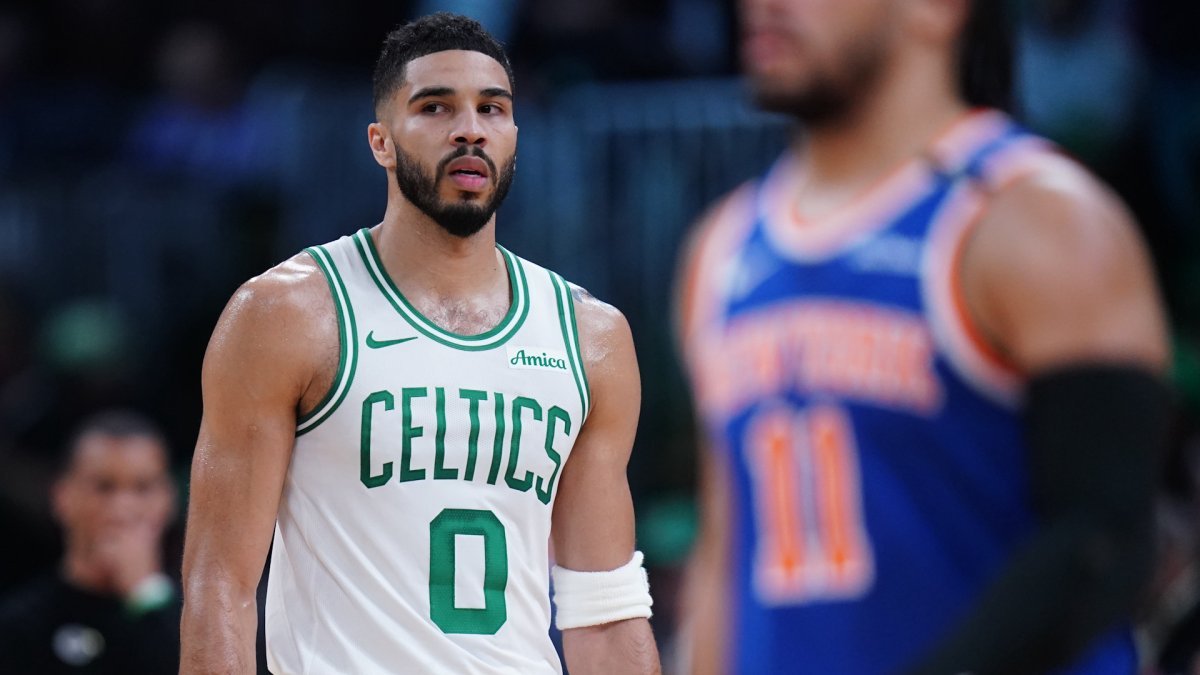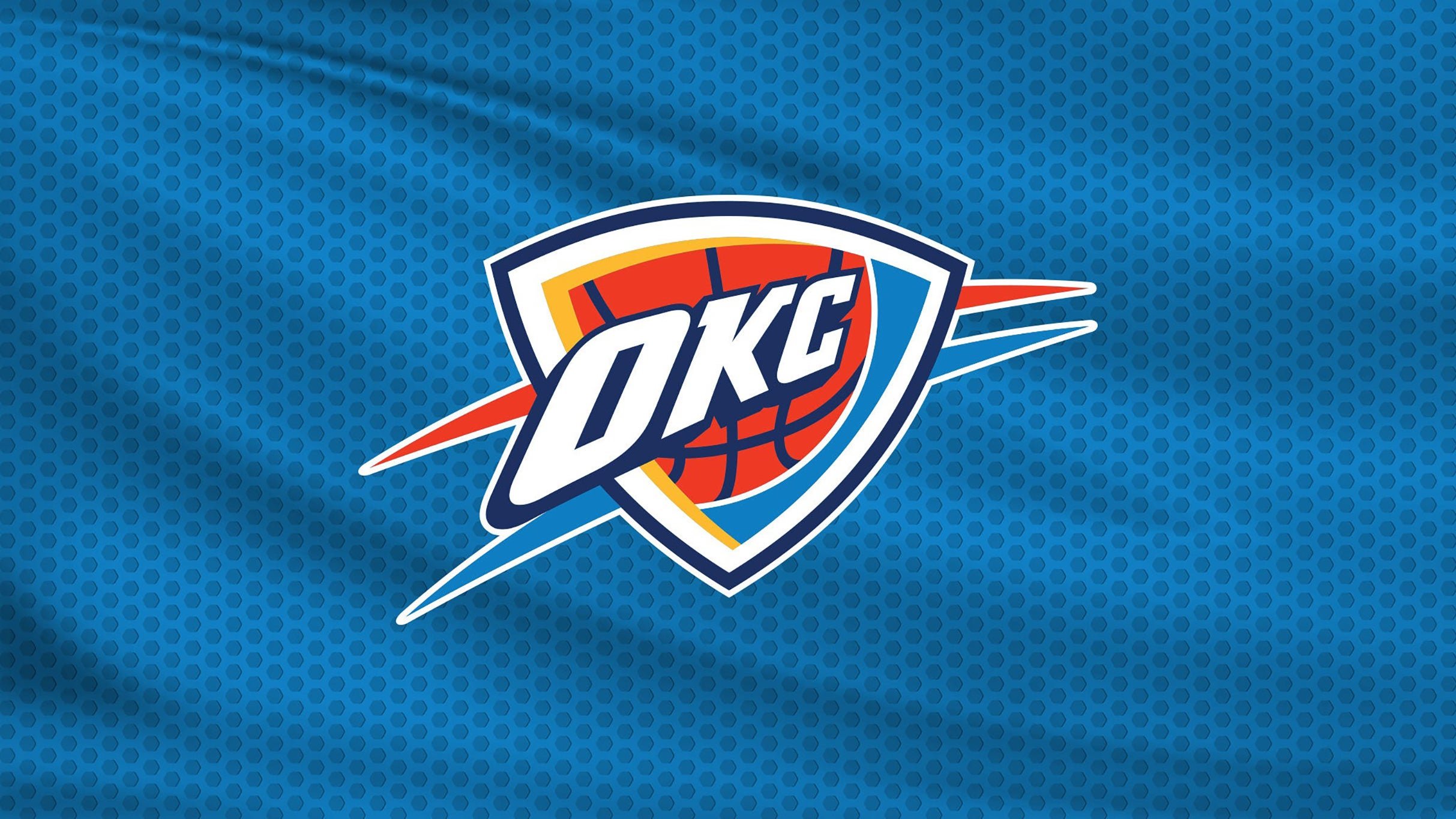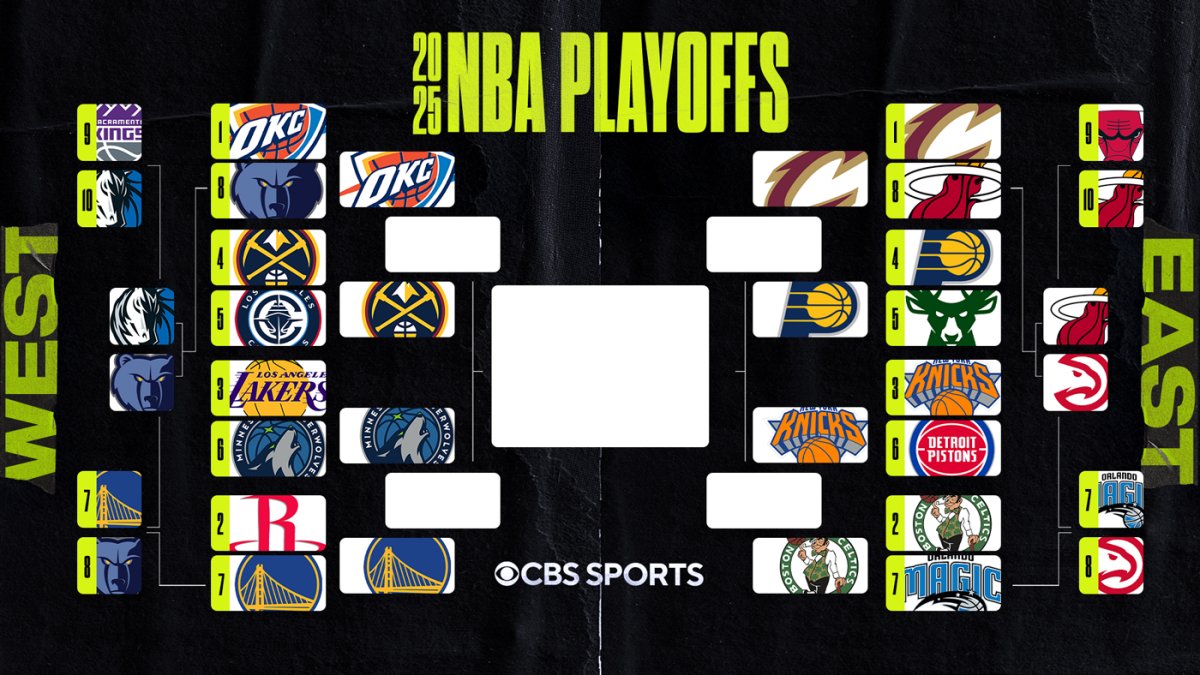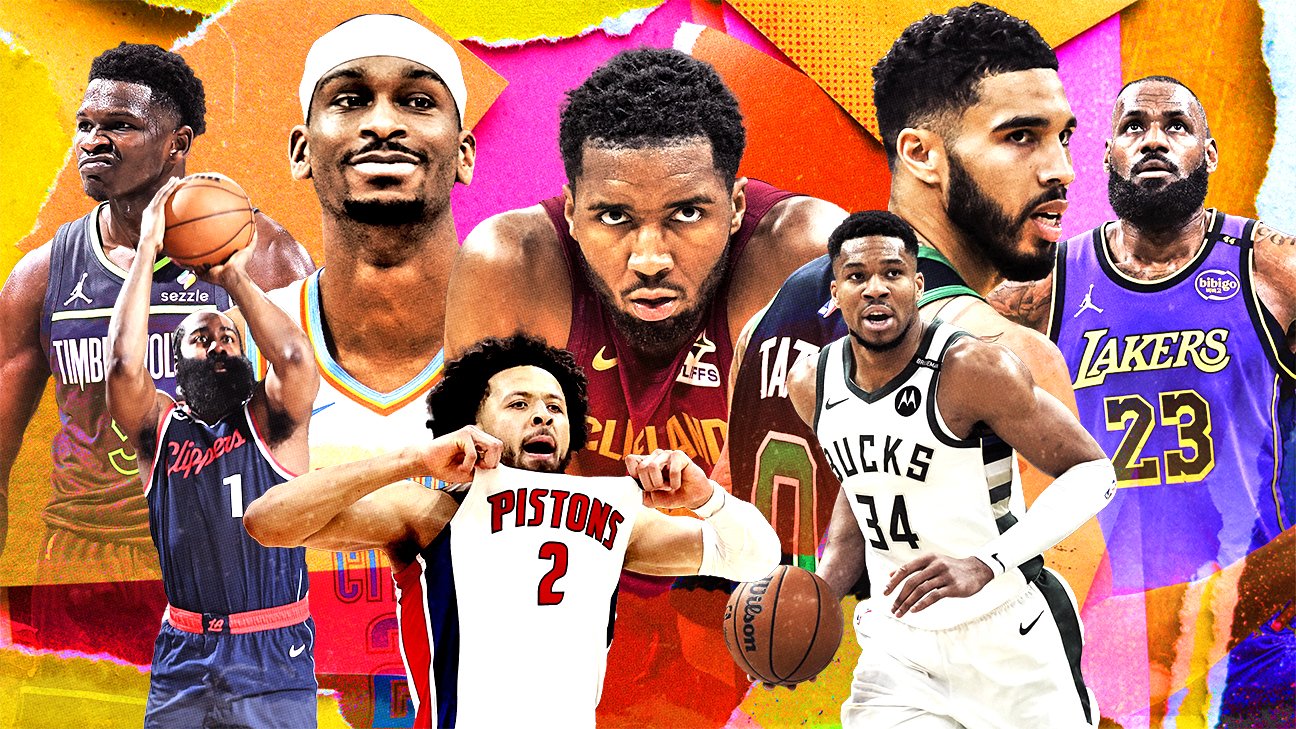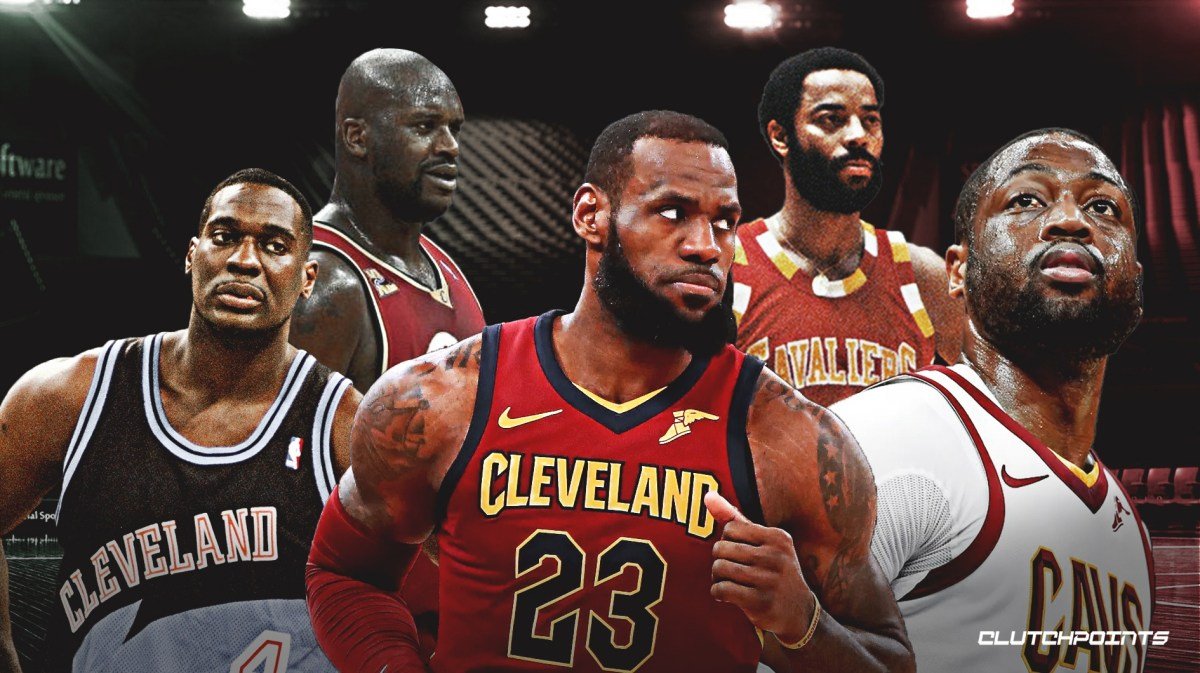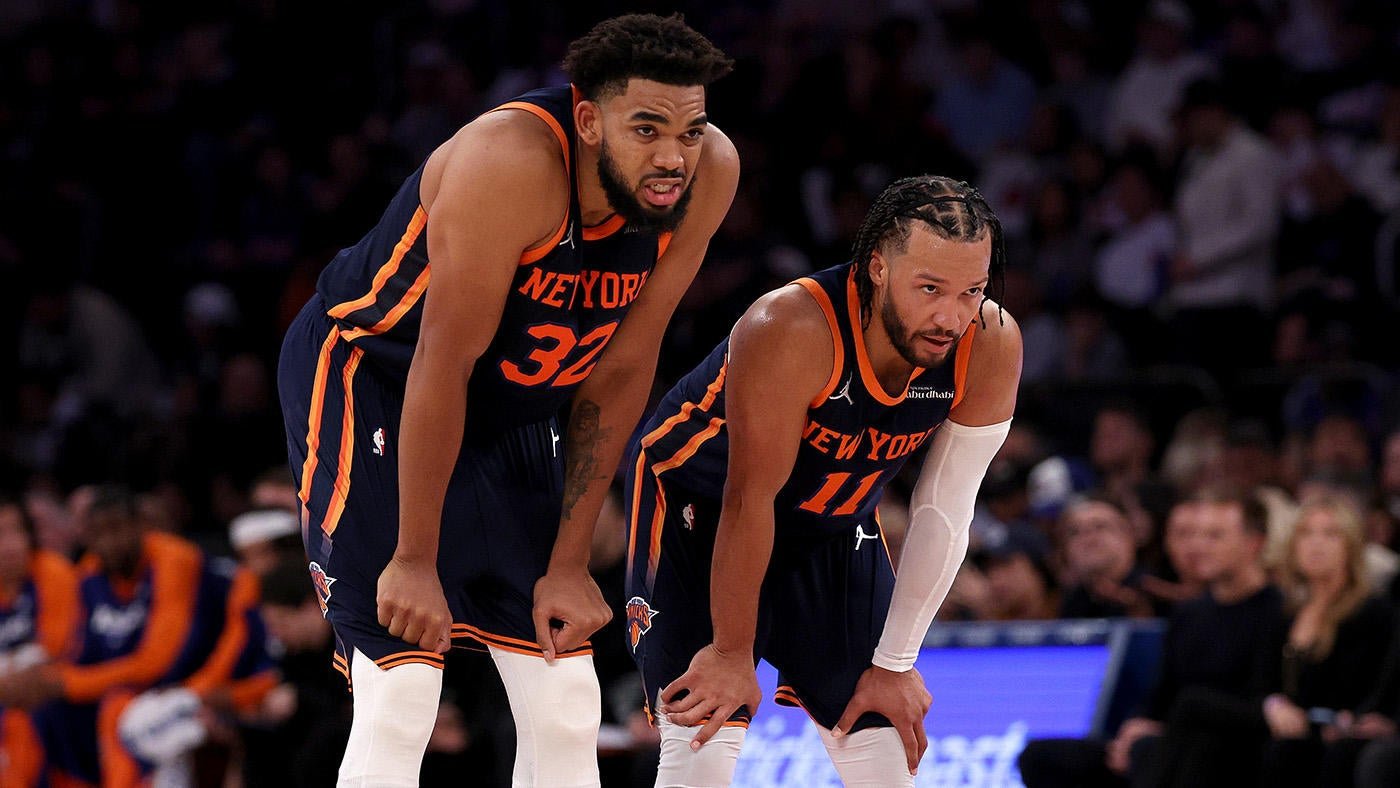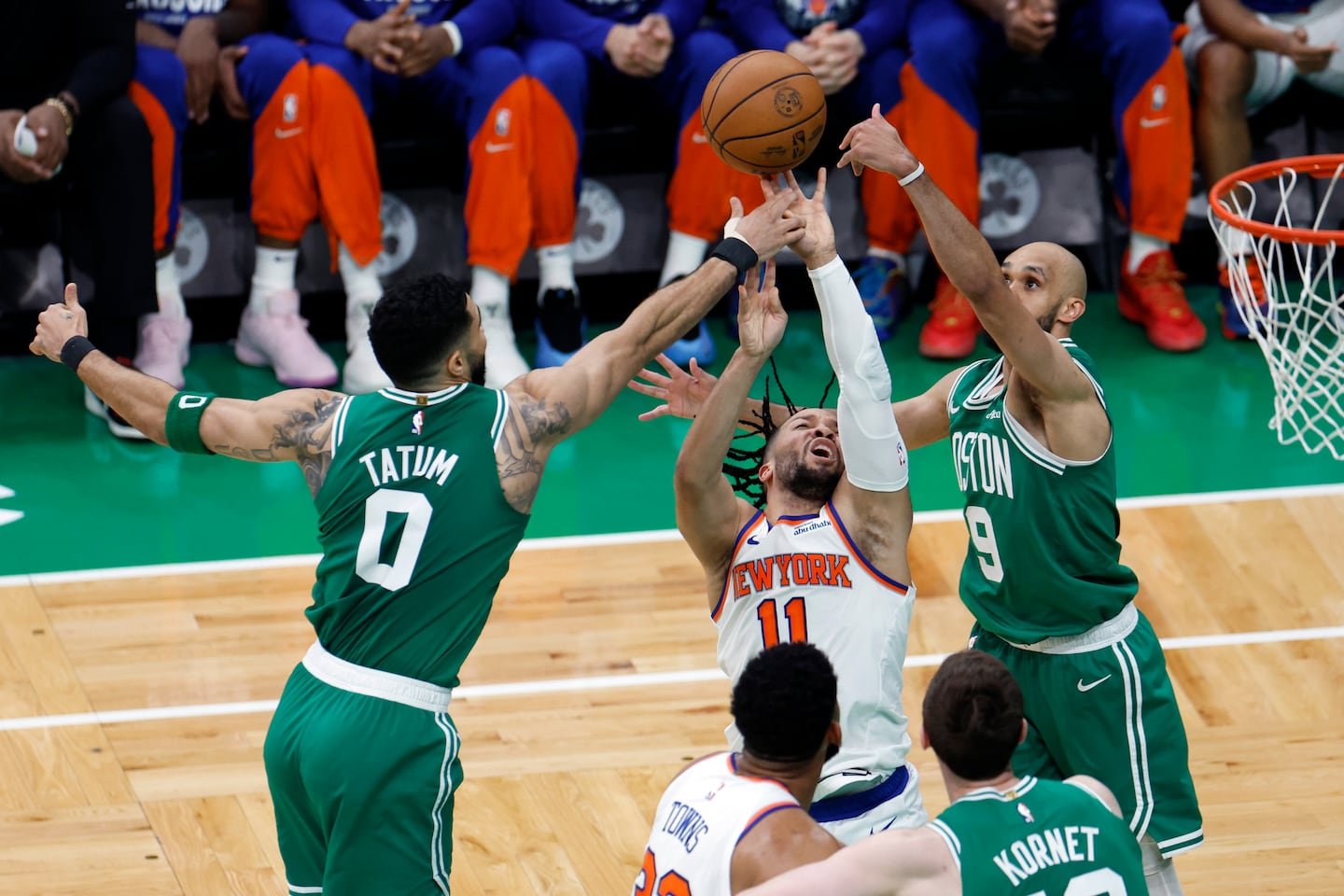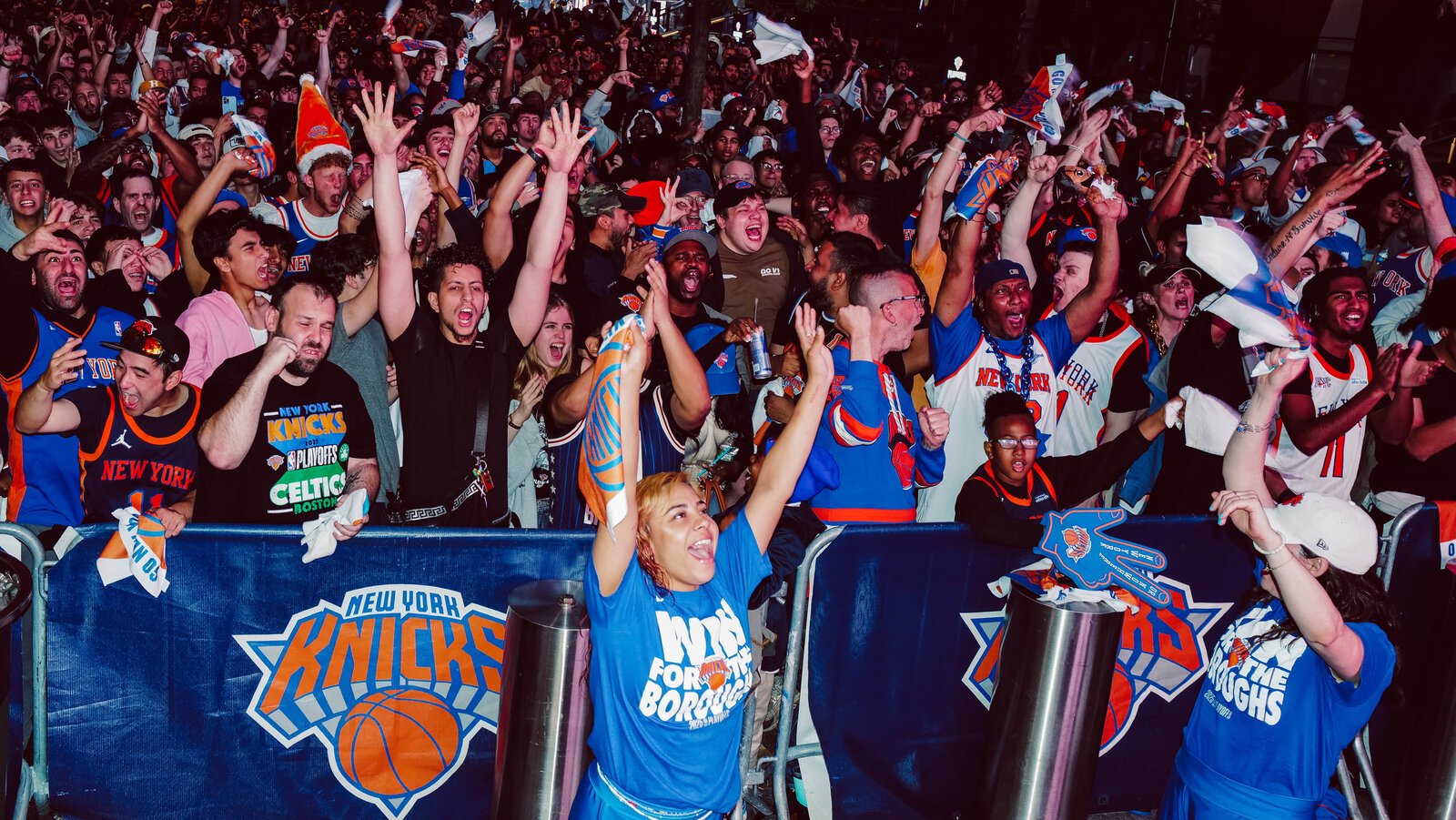This NBA postseason has reignited debate about Jayson Tatum’s place among basketball’s superstars. His recent playoff games against the New York Knicks, particularly in May 2025, saw his reputation pushed into uncomfortable territory for Celtics fans. While Boston’s playoff run was supposed to cement Tatum’s status, a troubling trend has carried over from past years, undermining his claim to be among the NBA’s most reliable superstars in the clutch.
As the Eastern Conference semifinals unfolded, the Celtics dropped two straight games to the Knicks. The attention quickly shifted toward Tatum’s struggles in key moments and the rise of Knicks guard Jalen Brunson, whose fourth-quarter heroics continue to change the playoff narrative. With criticism mounting and Tatum’s production in late-game situations coming under a microscope, many are now questioning how superstar status should really be defined in today’s NBA.
Jalen Brunson Overtakes Spotlight in Celtics vs. Knicks Playoff Series
Jalen Brunson has commanded the attention of fans and analysts during the Celtics-Knicks playoff series in spring 2025. With a combination of skill and composure, Brunson pushed New York to a shocking 2-0 series lead against a Boston team many expected to cruise through the round. His performance in the clutch has not only elevated the Knicks but sidelined the “arguably” qualifier in debates about the best player in the series.
Brunson scored at least 83 points in the fourth quarter through the first eight games of two straight playoff runs, a feat never seen before in NBA’s play-by-play era. His ability to deliver when the game is on the line doesn’t just boost his own reputation; it’s thrown into relief the gap between his play and Tatum’s in those same moments. For many, Brunson’s playoff output is reminiscent of great closers from previous eras, including names like Kobe Bryant.
What keeps Brunson’s story compelling is that his climb hasn’t been typical. He wasn’t a number-one draft pick or a player hyped early for MVP awards. This postseason, though, Brunson’s efficiency, leadership, and big buckets have positioned him not just as the Knicks’ engine, but as one of the NBA’s most trusted stars under pressure. Tatum, by contrast, faces more questions than answers.
The series has become as much about the changing of the guard in NBA stardom as it has about Celtics vs. Knicks. For now, the spotlight is unambiguously on Jalen Brunson, and his steady rise is rewriting both teams’ playoff stories.
Tatum’s Playoff Struggles Against Knicks Highlight Ongoing Trend
Jayson Tatum’s issues in the Celtics’ 2025 series with the Knicks are not isolated incidents. Across the first two games, he shot just 12-for-43 from the field, including a mere 5-for-20 from three-point range. In the final five minutes of those games, Tatum had only 4 points, while Brunson put up 17. These numbers have brought renewed focus to a trend that’s shadowed Tatum’s postseason resume for several years.
This postseason has looked like an unwanted replay for Tatum, echoing stretches from previous campaigns. Even as Boston won the championship last year, Tatum’s efficiency in critical moments lagged behind his regular season averages. Now, in 2025, his struggles feel less like an aberration and more like a persistent pattern. Tatum’s inability to find rhythm late in games has forced his team to seek answers elsewhere, and it’s allowed the Knicks to seize momentum repeatedly.
Much of the frustration comes from how complete Tatum’s game can appear during the regular season. Yet, during the playoffs, when expectations ramp up, those diverse skills have not translated into the dominance fans and analysts expect.
Boston’s losses in these crucial games have exposed not only a superstar under scrutiny but a recurring issue that challenges the core of what makes an NBA player elite when it matters most.
Comparing Clutch Performances: Brunson vs. Tatum
When comparing Jalen Brunson and Jayson Tatum, the contrast in clutch-time production during these playoffs is stark. Over the last two postseasons, Brunson has scored an astounding 90 clutch points – already the most in back-to-back playoff runs since Kobe Bryant did it in 2009-2010. Tatum’s numbers in the same situations are less impressive, reflecting a larger problem for Boston’s go-to guy under pressure.
A look at the Celtics-Knicks series underlines this divide. In the last five minutes of close games during Games 1 and 2, Brunson outscored both Tatum and the entire Celtics roster. Clutch situations have become Brunson’s stage, and he’s thriving. For Tatum, the inability to match those numbers in big moments is now a concern that can’t be ignored.
Fans and NBA insiders often reduce arguments about superstars to one question: “Who do you trust with the last shot?” Based on the evidence from this series and the numbers backing it up, the clear answer right now is Brunson. His calmness under pressure, shot selection, and willingness to take responsibility in final moments set him apart from his Boston counterpart.
These clutch moments often decide playoff series. For now, Brunson’s performances have put him at the center of every conversation about who the real star is when the game hangs in the balance.
| Player | Clutch Points (2 Postseasons) |
|---|---|
| Jalen Brunson | 90 |
| Jayson Tatum | 24 |
Statistical Breakdown of Tatum’s Crunch Time Issues
Jayson Tatum’s numbers in the clutch have been underwhelming not just in this year’s playoffs, but across several postseason campaigns. With only 2-for-10 shooting and 0-for-4 from beyond the arc in crunch time this postseason, Tatum’s problems are clearer than ever. Even during last year’s championship run, he shot just 36% in regular season clutch minutes and was 5-for-17 in playoff clutch shots.
This trend is not new. Looking back, Tatum’s production in the clutch has consistently fallen short when compared to other top-tier NBA players. In the 2023 Eastern Conference Finals, when Boston was on the brink, Tatum shot a mere 23% from three-point range over the entire series. These numbers highlight a persistent struggle to elevate his game during the moments when it is most needed.
The data suggests that, while Tatum’s overall statistics may shine, he rarely delivers peak performance at the game’s most crucial junctures. Table below shows the sharp reality:
| Year | FGM-FGA | 3PM-3PA |
|---|---|---|
| 2019 | 2-5 | 1-3 |
| 2020 | 5-21 | 1-9 |
| 2021 | 1-1 | 0-0 |
| 2022 | 4-8 | 0-1 |
| 2023 | 8-18 | 5-10 |
| 2024 | 5-17 | 1-7 |
| 2025 | 2-10 | 0-4 |
Tatum’s career clutch shooting percentage sits at 36.8% from the field and only 23.5% from deep, putting him well behind most contemporaries considered truly elite in late-game situations.
Offensive Efficiency Questions for Tatum in the Postseason
Tatum’s playoff efficiency, especially in tight contests, has come under intense review as the Celtics chase another championship. Despite being a first-team All-NBA regular, his postseason shooting percentage has frequently dipped below his regular season marks. In 2024 and 2025 combined, his field goal percentage in playoff games often dipped to the low 40s, and three-point accuracy has routinely been under 30% in high-pressure settings.
Many basketball fans and analysts point to how defenses key in on Tatum during playoffs. While this is expected with star players, the hope is for superstars to at least maintain efficiency. For Tatum, the extra attention sometimes forces rushed shots and contested jumpers, which drags his numbers down even further.
Also Read
Oklahoma City Thunder’s Relentless Defense Powers Historic Season
There’s no doubting Tatum’s role as a focal point of Boston’s offense, yet expectations rise during the postseason. Missed looks around the rim and a drop in free throw percentage only add to the noise about his postseason reliability. Unlike other top-tier scorers, Tatum hasn’t consistently found a way to keep his shooting numbers up when defenses lock in.
The inability to convert open looks or simple drives when the season is on the line is not new for Tatum but has become more glaring in this latest playoff run. For a player with Tatum’s regular season reputation, the ongoing struggles with efficiency remain the central debate about his place among NBA greats.
Superstar Standards and Boston’s Team Narrative
Debates about NBA superstar status always intensify in the playoffs. For Jayson Tatum, the question has become more about narrative than raw talent or box score numbers. Playing for a team as stacked as the Celtics, who boast several other All-Star-caliber contributors, makes it easy for critics to downplay Tatum’s individual impact – especially when he isn’t the sole reason for Boston’s success or failure.
Similar to past perceptions about Stephen Curry and the Warriors, Tatum’s achievements are at times viewed through the lens of his environment. Many suggest that a “sum-of-its-parts” superteam like Boston can mask a player’s rough edges. As a result, even first-team All-NBA nods and multiple deep playoff runs haven’t universally established Tatum in the elite tier in the eyes of fans and media.
Also Read
NBA Playoff Player Props and Best Bets for Friday, May 9: Top Picks for Indiana vs Cleveland and Nuggets vs Thunder
Tatum’s lack of a Finals MVP trophy is often cited in conversation, mirroring stories that trailed other Celtics legends. The narrative around him is a blend of context and expectation, sometimes making his ceiling seem artificially lower compared to peers on less talented teams who shoulder more responsibility – like Jalen Brunson in New York.
The ongoing scrutiny points to the ever-shifting standards of what makes someone a “true” superstar, and how heavily context and narratives can shape lasting reputations in NBA history.
Tatum’s Contributions Outside Scoring: Defense, Rebounding, Playmaking
Jayson Tatum’s value to the Celtics extends well beyond just putting the ball in the hoop. He’s developed into a strong two-way player, ranking among the best rebounding forwards in the league and consistently taking the toughest defensive assignments. In games where his shot isn’t falling, Tatum often finds ways to impact the game elsewhere.
During the current playoff run, despite offensive struggles, Tatum has averaged near double-digit rebounds and has provided crucial rim protection and on-ball defense. His hands and length disrupt passing lanes, and he’s managed several key stops when Boston most needed them.
Also Read
2025 NBA Playoffs Second Round Schedule, Bracket, and Key Dates
Playmaking is another area where Tatum has quietly grown. His assist numbers have trended upward each season, and in high-pressure moments, he’s learned to trust teammates by moving the ball instead of settling for difficult shots. This all-around skillset is a major reason why Boston remains a threat, even when Tatum is cold from the field.
Coaches and teammates repeatedly stress that Tatum’s influence goes far beyond the stat sheet. These contributions, while not always highlighted by headline writers, solidify his importance to the Celtics’ championship aspirations – even if his clutch scoring lags behind other stars.
Context Behind Tatum’s Playoff Shooting Slump
Several factors help explain why Jayson Tatum’s postseason shooting can falter. The Celtics’ playoff opponents routinely build their defensive game plans around stopping Tatum. As the primary focus of every defense, he faces traps, double teams, and relentless pressure, which aren’t as common in the regular season.
Tatum’s tendency to force shots when under pressure also plays a role. Analysts have noticed that in high-leverage moments, he sometimes tries to take on the responsibility alone, resulting in tougher, lower percentage looks. The relentless nature of playoff basketball leaves less room for errors, so every miss gets magnified.
Also Read
Heisman Trophy Hopefuls for Every Top 25 Team Ahead of the 2025 College Football Season
Another reason for the shooting dip is the physical fatigue that accumulates in deep runs. As Boston’s primary scorer and defender, Tatum’s minutes are high, and his workload intense. Fatigue can affect jump shooting, especially late in games and long series. This has been a factor in multiple years where Tatum’s efficiency trailed off after extended playoff action.
The Team USA Experience and Its Impact on Perceptions
Tatum’s stint with Team USA during last summer’s Olympic gold medal campaign provided another example of shifting roles and expectations. Despite being an NBA superstar, Tatum took a supporting role on a roster stacked with talent. Coach Steve Kerr often preferred other shooters, like Devin Booker, in crunch moments, and Tatum logged most of his time as a bench contributor.
This experience – reduced minutes and a narrower set of responsibilities – fueled more debate about his place among the very best. For critics, failing to stand out among American basketball’s elite raised questions. For those close to Tatum, the context was clear: on a roster brimming with superstars, his assignment was limited, and his role was different than with the Celtics.
The Team USA benching was sometimes unfairly linked to his NBA performance. However, it highlighted an important NBA truth: context and fit often dictate how a player is perceived, and not everyone will be the alpha on every big stage. Tatum’s Olympic journey reflected both the depth of American basketball talent and the unique pressures placed on NBA stars outside their usual team environments.
Also Read
Cavaliers vs Pacers Game 3 Odds, Prediction, and Key Storylines as Cleveland Looks to Recover
Media and Fan Perspectives on Modern NBA Superstars
The debate surrounding Jayson Tatum’s stardom is intensely shaped by the narratives spun by the media and the expectations of fans. With more data and highlights available than ever, each playoff series quickly creates heroes and villains in the eyes of the public. Tatum’s recent shooting slumps have become meme-worthy moments, while hot streaks from players like Jalen Brunson instantly elevate their standing across social media and sports talk shows.
Fans are less forgiving than ever, with superstar conversations often boiling down to clutch moments and championship rings. Even a single missed shot late in a game can reset opinions about a player’s long-term legacy. For better or worse, the “what have you done for me lately?” approach dominates NBA conversations online and in print.
Media outlets frequently recycle narratives about who is truly “elite” based on the latest round of playoffs. This constant judgment cycle keeps players like Tatum in the spotlight, for better or worse, every spring. The nature of basketball storytelling in the modern era ensures that a player can both rise and fall in the all-time rankings within the span of a single series.
For Tatum, the next game, series, or even possession can be the difference between being called a superstar or having his place questioned all over again.
Also Read
Jalen Brunson: Breaking Down What Makes the Knicks Star the NBA’s Most Clutch Scorer
Has Brunson Seized Tatum’s Place in NBA’s Superstar Hierarchy?
It appears that Jalen Brunson has, at least temporarily, taken over the spotlight and pushed Jayson Tatum out of the center of NBA superstar debates. Brunson’s clutch scoring and fearlessness have not only propelled the Knicks but might shift the NBA’s superstar hierarchy if the trend continues throughout the playoffs.
Tatum’s ceiling as a “utility superstar” – always present, rarely the unquestioned alpha – has made room for ascending stars like Brunson, whose undeniable postseason stats and leadership on a less talented roster make him the main character in this year’s narrative. As fans and analysts look for the next heir to NBA glory, Brunson’s game-to-game output sets the new standard for stardom in the league’s biggest moments.
While Tatum has every opportunity to rewrite this story as the playoffs progress, the current evidence points to a subtle but meaningful shift in perception. The NBA’s list of true superstars is always evolving. For now, Jalen Brunson’s name sits near the top, with Tatum forced to answer questions once more about where he truly belongs in the superstar hierarchy.

